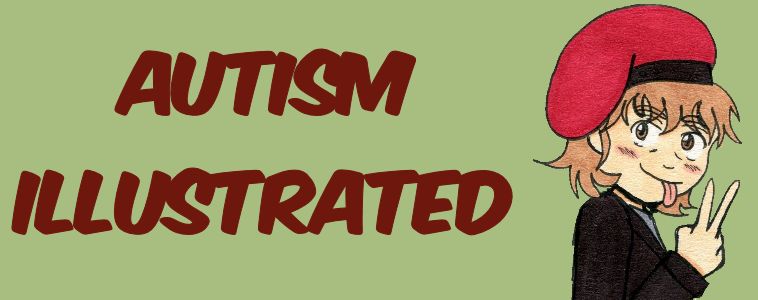It's old news now that Autism Speaks changed their mission statement to eliminate references to "finding a cure." In fact, here's their new mission statement in full, right from their website:
Autism Speaks is dedicated to promoting solutions, across the spectrum and throughout the lifespan, for the needs of individuals with autism and their families through advocacy and support; increasing understanding and acceptance of autism spectrum disorder; and advancing research into causes and better interventions for autism spectrum disorder and related conditions.
Autism Speaks enhances lives today and is accelerating a spectrum of solutions for tomorrow.Okay, so according to this they're not interested in a cure anymore, and that's great! That's a wonderful step in the right direction! However, there are words I'm a bit wary of in here still due to some historical context. There was an event during the Third Reich's stranglehold on Germany called Aktion T4, a move by the government to systematically execute thousands of disabled and mentally ill people. Officially, 70,273 people were killed, although there could easily be more of them that weren't recorded. Aktion T4 was only a test run, however, for Nazi Germany's execution of 6 million Jewish people and millions of other people. That's right, they tested the Final Solution out on people like me. Therefore, seeing the word 'solutions' always makes me a bit nervous because I happen to be a working historian. I'm not sure that it's meant in that way here, but it's still a word I'm very cautious about.
Additionally, if there's no need for a cure, why still look for a cause? Just throwing that out there, too.
With the death of Suzanne Wright, it's possible that Autism Speaks is going to be able to start moving in a new direction since Bob and Suzanne Wright more or less had a stranglehold on the entire organization and were extremely interested in finding a cure. There are now two autistic people on the Board of Directors, and frankly, I'm hoping to see more there in the future because for Autism Speaks to be as legitimate as possible they need to let autistic people themselves do the primary speaking so that people listen and learn from us. It's very possible that they actually are working on doing the right thing and working towards acceptance instead of a cure, and that would be nice. However, I think they owe us an apology for pushing forward so much hateful rhetoric and for their fear-mongering for the past eleven years that has vilified us and cast us as something that needs to be eliminated from society. For this, I propose we take a look at the site of one of my archival jobs, the Riverside Church in the City of New York.
In May of 1969, an activist by the name of James Forman interrupted a service at Riverside to deliver his Black Manifesto, demanding reparations for slavery and cultural injustice delivered to African-Americans by white people for centuries. Not long after, Riverside's pastor, Ernest T. Campbell, replied with a sermon called The Case For Reparations, supporting Forman's notion. It got me thinking - autistic people have suffered in silence for centuries, only to have been suddenly deemed an epidemic in the past twenty years and treated as less than human. Do we not, too, deserve reparations, especially those of us who are routinely dismissed, such as female and non-white autistic people? Do we not deserve to fight for our human rights, as well, and demand an apology from the organization that turned society against us, that caused the condition we identify with to be used as an insult? I believe that until Autism Speaks issues an apology and actively works to undo the damage they caused with their rhetoric, we can't fully believe they are working in our favor.
Continue, therefore, to stand up for yourselves in the face of ableism. Do not automatically expect Autism Speaks to speak for us since it's clear that it was our urging and activism that brought them to make this change in the first place and they haven't spoken for us properly before. Continue to urge and fight for change and improvement in this world - and don't forget that Autism Speaks still owes us an apology.
Reparations would be nice, too, since I have student loans to pay off.
